-
 bitcoin
bitcoin $87959.907984 USD
1.34% -
 ethereum
ethereum $2920.497338 USD
3.04% -
 tether
tether $0.999775 USD
0.00% -
 xrp
xrp $2.237324 USD
8.12% -
 bnb
bnb $860.243768 USD
0.90% -
 solana
solana $138.089498 USD
5.43% -
 usd-coin
usd-coin $0.999807 USD
0.01% -
 tron
tron $0.272801 USD
-1.53% -
 dogecoin
dogecoin $0.150904 USD
2.96% -
 cardano
cardano $0.421635 USD
1.97% -
 hyperliquid
hyperliquid $32.152445 USD
2.23% -
 bitcoin-cash
bitcoin-cash $533.301069 USD
-1.94% -
 chainlink
chainlink $12.953417 USD
2.68% -
 unus-sed-leo
unus-sed-leo $9.535951 USD
0.73% -
 zcash
zcash $521.483386 USD
-2.87%
How to make a decision if the moving average is about to golden cross but has not been confirmed?
A golden cross in crypto trading signals potential bullish momentum when the 50-day MA crosses above the 200-day MA, but traders should confirm with volume, RSI, and market sentiment before acting.
Jun 20, 2025 at 07:08 am
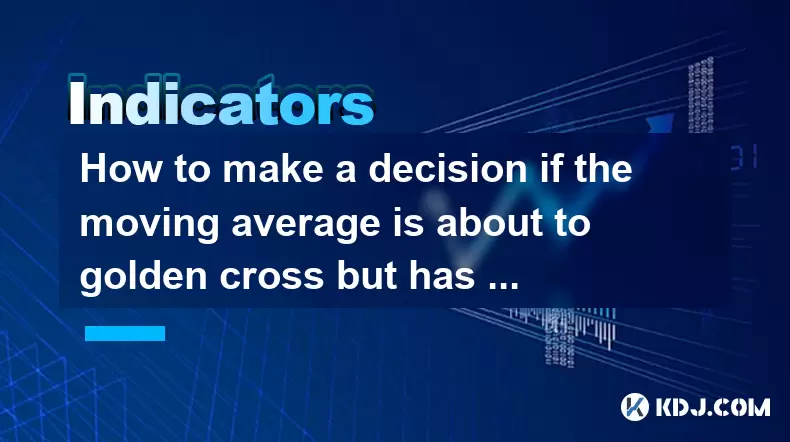
Understanding the Golden Cross in Cryptocurrency Trading
In cryptocurrency trading, a golden cross occurs when a short-term moving average (such as the 50-day MA) crosses above a long-term moving average (such as the 200-day MA). This pattern is often seen as a bullish signal, suggesting that an uptrend may be beginning. However, before the crossover is confirmed, traders face a dilemma: should they act early or wait for confirmation?
Golden cross patterns are not always reliable, especially in highly volatile crypto markets where false signals can occur frequently.
Identifying the Pre-Golden Cross Scenario
Before a golden cross becomes official, the short-term moving average is approaching the long-term one from below but hasn't crossed it yet. In this phase, several technical indicators and market conditions must be analyzed carefully.
- Monitor the distance between the two MAs: A narrowing gap suggests momentum may soon shift upward.
- Watch for price behavior near key support levels: If the price holds above the long-term MA while the short-term MA approaches, it could indicate strength.
- Check volume trends: Increasing volume during the approach can suggest institutional buying or growing interest.
These observations help traders assess whether the upcoming golden cross might be valid or just a temporary bounce.
Combining Moving Averages with Other Indicators
Relying solely on moving averages can be risky. To increase confidence in a potential golden cross, traders often use complementary tools:
- Relative Strength Index (RSI): If RSI is rising from oversold territory, it supports the idea of strengthening momentum.
- MACD (Moving Average Convergence Divergence): A bullish MACD crossover ahead of the golden cross adds confluence to the setup.
- Volume Profile: High volume at recent lows may indicate strong support forming, increasing the likelihood of a successful breakout.
Using multiple tools helps filter out weak setups and confirms the strength behind the potential golden cross.
Evaluating Market Conditions and Sentiment
Cryptocurrency markets are heavily influenced by sentiment and macroeconomic factors. Before acting on a potential golden cross, consider:
- News cycles: Positive regulatory developments or major exchange listings can boost prices even without technical confirmation.
- Bitcoin dominance: If BTC is gaining strength against altcoins, broader market trends may align with the golden cross signal.
- Fear & Greed Index: Extreme fear can lead to capitulation, setting up for a reversal once the golden cross forms.
Market psychology plays a crucial role, particularly in speculative assets like cryptocurrencies.
Risk Management Strategies Before Confirmation
Even if all signs point toward a golden cross, entering too early can expose traders to unnecessary risk. Here's how to manage exposure:
- Use limit orders near the expected crossover zone: This allows entry at favorable prices without chasing the move.
- Set tight stop-loss levels: Placing stops slightly below the long-term MA can protect capital if the pattern fails.
- Consider scaling into positions: Buying in increments reduces the impact of false breakouts and increases flexibility.
Risk management ensures that even if the golden cross doesn't materialize, losses remain controlled.
Frequently Asked Questions
Q: What time frame is best for analyzing a potential golden cross?A: While daily charts are most commonly used for golden cross analysis, some traders monitor weekly charts for long-term signals or hourly charts for intraday entries. The choice depends on your trading strategy and time horizon.
Q: Can a golden cross fail after it’s formed?A: Yes, a golden cross can result in a false breakout, especially in choppy or sideways markets. It's important to watch for follow-through volume and price action after the cross to confirm its validity.
Q: Should I use simple or exponential moving averages for golden cross analysis?A: Both types are used. Exponential Moving Averages (EMAs) react faster to price changes and may give earlier signals, while Simple Moving Averages (SMAs) are smoother and less prone to whipsaws. Many traders use a combination for better accuracy.
Q: Is the golden cross more reliable in certain cryptocurrencies?A: The effectiveness of the golden cross varies across assets. It tends to work better in larger, more liquid cryptocurrencies like Bitcoin and Ethereum due to stronger participation and clearer trend formations.
Disclaimer:info@kdj.com
The information provided is not trading advice. kdj.com does not assume any responsibility for any investments made based on the information provided in this article. Cryptocurrencies are highly volatile and it is highly recommended that you invest with caution after thorough research!
If you believe that the content used on this website infringes your copyright, please contact us immediately (info@kdj.com) and we will delete it promptly.
- Trump's Northern Blast: How Canada Remarks Jolted WLFI Price and Shook Crypto Holders
- 2026-02-01 21:55:01
- LivLive Ignites Crypto Presale with Trillion-Dollar Ambitions: The Reality Layer Takes Center Stage
- 2026-02-01 21:50:02
- Buttcoin's Big Apple Buzz: Surging on Coinbase, Trending in the Crypto Wild West
- 2026-02-01 21:45:01
- Tokenization, Stablecoins, Remittances: The New York Minute for Global Finance
- 2026-02-01 19:20:01
- BlockDAG Poised for 100x Crypto Opportunity as Presale Enters Final Hours, Promising Massive Gains
- 2026-02-01 19:20:01
- Circle Charts Bold Course: Stablecoins to Reshape Global Finance by 2026
- 2026-02-01 19:25:01
Related knowledge
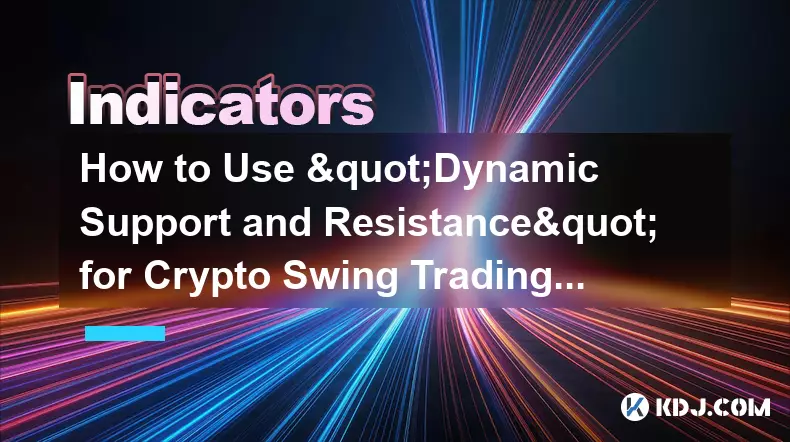
How to Use "Dynamic Support and Resistance" for Crypto Swing Trading? (EMA)
Feb 01,2026 at 12:20am
Understanding Dynamic Support and Resistance in Crypto Markets1. Dynamic support and resistance levels shift over time based on price action and movin...
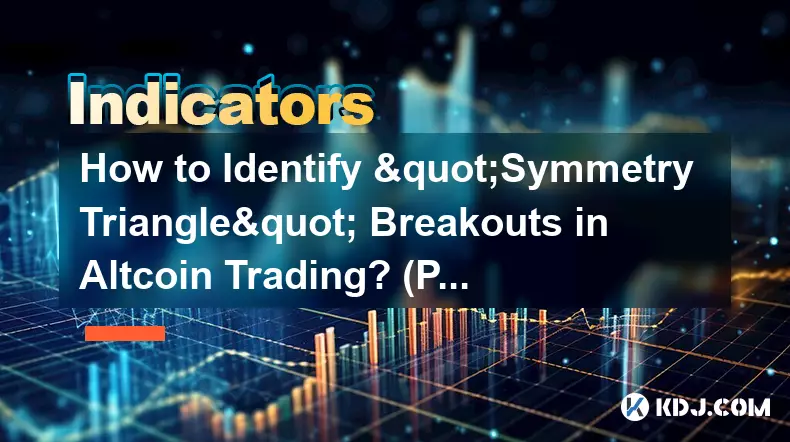
How to Identify "Symmetry Triangle" Breakouts in Altcoin Trading? (Patterns)
Feb 01,2026 at 01:39pm
Symmetry Triangle Formation Mechanics1. A symmetry triangle emerges when price action consolidates between two converging trendlines—one descending an...
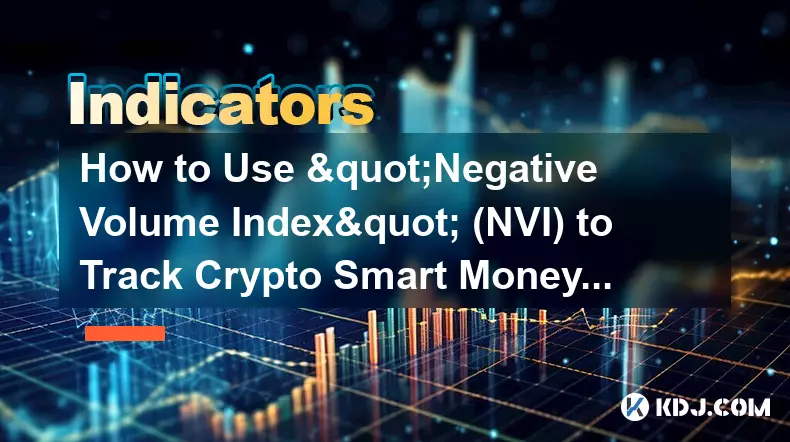
How to Use "Negative Volume Index" (NVI) to Track Crypto Smart Money? (Pro)
Feb 01,2026 at 02:40am
Understanding NVI Mechanics in Crypto Markets1. NVI calculates cumulative price change only on days when trading volume decreases compared to the prio...
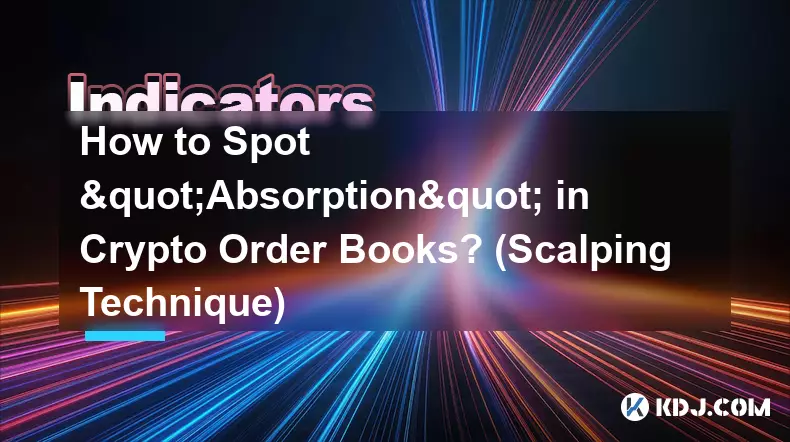
How to Spot "Absorption" in Crypto Order Books? (Scalping Technique)
Feb 01,2026 at 08:39pm
Understanding Absorption Mechanics1. Absorption occurs when large buy or sell orders repeatedly appear and vanish at the same price level without trig...
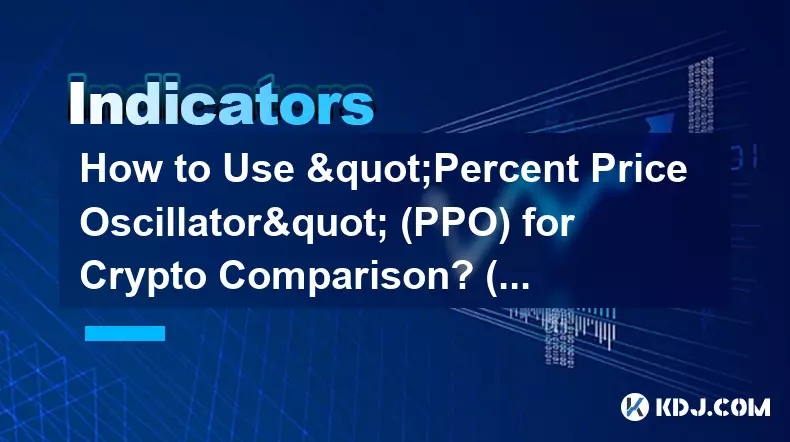
How to Use "Percent Price Oscillator" (PPO) for Crypto Comparison? (Strategy)
Feb 01,2026 at 01:59am
Understanding PPO Mechanics in Volatile Crypto Markets1. The Percent Price Oscillator calculates the difference between two exponential moving average...
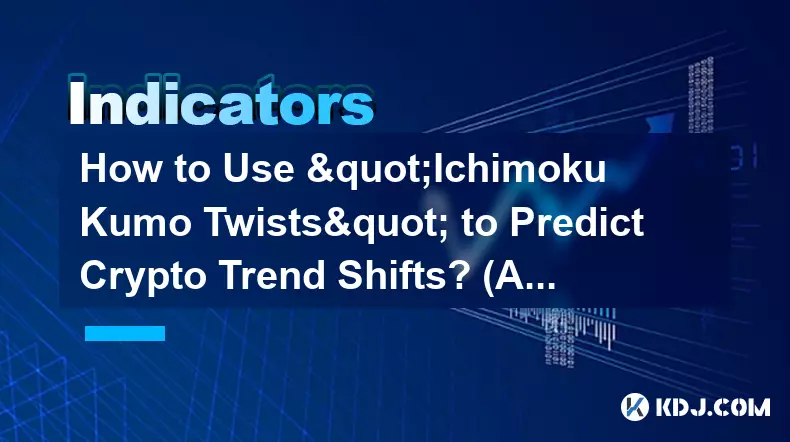
How to Use "Ichimoku Kumo Twists" to Predict Crypto Trend Shifts? (Advanced)
Feb 01,2026 at 10:39am
Understanding the Ichimoku Kumo Structure1. The Kumo, or cloud, is formed by two boundary lines: Senkou Span A and Senkou Span B, plotted 26 periods a...

How to Use "Dynamic Support and Resistance" for Crypto Swing Trading? (EMA)
Feb 01,2026 at 12:20am
Understanding Dynamic Support and Resistance in Crypto Markets1. Dynamic support and resistance levels shift over time based on price action and movin...

How to Identify "Symmetry Triangle" Breakouts in Altcoin Trading? (Patterns)
Feb 01,2026 at 01:39pm
Symmetry Triangle Formation Mechanics1. A symmetry triangle emerges when price action consolidates between two converging trendlines—one descending an...

How to Use "Negative Volume Index" (NVI) to Track Crypto Smart Money? (Pro)
Feb 01,2026 at 02:40am
Understanding NVI Mechanics in Crypto Markets1. NVI calculates cumulative price change only on days when trading volume decreases compared to the prio...

How to Spot "Absorption" in Crypto Order Books? (Scalping Technique)
Feb 01,2026 at 08:39pm
Understanding Absorption Mechanics1. Absorption occurs when large buy or sell orders repeatedly appear and vanish at the same price level without trig...

How to Use "Percent Price Oscillator" (PPO) for Crypto Comparison? (Strategy)
Feb 01,2026 at 01:59am
Understanding PPO Mechanics in Volatile Crypto Markets1. The Percent Price Oscillator calculates the difference between two exponential moving average...

How to Use "Ichimoku Kumo Twists" to Predict Crypto Trend Shifts? (Advanced)
Feb 01,2026 at 10:39am
Understanding the Ichimoku Kumo Structure1. The Kumo, or cloud, is formed by two boundary lines: Senkou Span A and Senkou Span B, plotted 26 periods a...
See all articles
























![[Audio stories] Streamer Became a Billionaire Overnight After Buying One Junk Coin [Audio stories] Streamer Became a Billionaire Overnight After Buying One Junk Coin](/uploads/2026/02/01/cryptocurrencies-news/videos/origin_697eaa9a495ed_image_500_375.webp)

















































